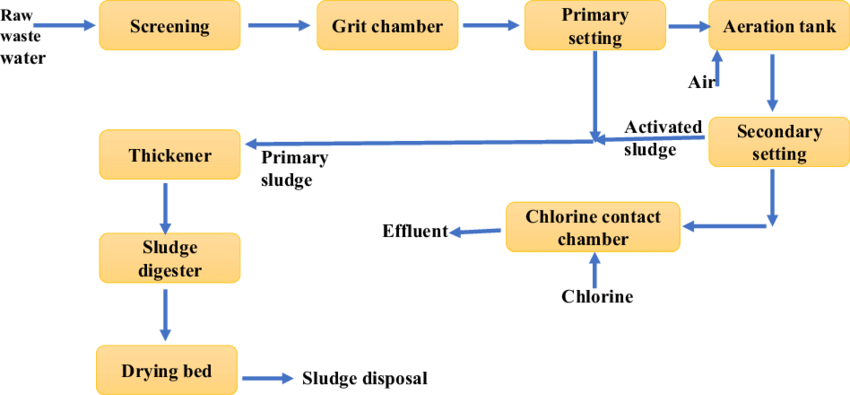How Reclaim Waste can Save You Time, Stress, and Money.
How Reclaim Waste can Save You Time, Stress, and Money.
Blog Article
All About Reclaim Waste
Table of ContentsReclaim Waste for Beginners8 Easy Facts About Reclaim Waste ShownThe smart Trick of Reclaim Waste That Nobody is DiscussingNot known Facts About Reclaim WasteFascination About Reclaim Waste
Check out the types, incidents, and types of fluid waste. Residential sewer waste describes the waste and products from a domestic septic system. This sort of waste is produced by people in homes, institutions, and various other structures. This only consists of septic containers that have a drain area. The correct administration and disposal of residential sewer waste call for liquid waste to be transferred to a sewage therapy plant where the appropriate techniques and equipment are related to purify and take care of waste.
Industrial waste commonly consists of possible hazards, such as flammable products or a blend of fluid and solid waste products, and needs a more innovative and thorough disposal process. The disposal of commercial waste commonly includes the purification of waste prior to transportation to ensure secure and proper disposal. Industrial waste is developed from results and drainage of commercial processes and manufacturing.
This kind of waste can not utilize the exact same sewage management transport or processes as septic or business fluids. The hazardous waste management procedure requires the evaluation and screening of fluid waste before it undergoes the disposal procedure (liquid waste removal). Drainage waste is the liquid waste that comes from drainage and excess stormwater in very populated locations or cities
Overflow waste can create contamination and flooding otherwise taken care of effectively. Discover more regarding sewer cleaning and waste monitoring. Ensuring proper waste management can avoid disasters and minimize environmental damage. Both individuals in property settings and experts in commercial or manufacturing industries can take advantage of understanding the processes and regulations of liquid waste administration.
The Greatest Guide To Reclaim Waste
Contact PROS Solutions today to find out about our waste administration and disposal services and the proper methods to look after the liquid waste you produce.
(https://leonaube33101.wixsite.com/reclaim-waste/post/effective-liquid-waste-removal-and-disposal-everything-you-need-to-know)This supposed 'wastewater' is not just a vital source however, after treatment, will be launched to our land, rivers or the ocean. Made use of water from bathrooms, showers, bathrooms, kitchen area sinks, washings and commercial processes is understood as wastewater.

water used to cool machinery or clean plant and equipment). Stormwater, websites a form of wastewater, is overflow that streams from farming and city locations such as roofs, parks, gardens, roads, courses and rain gutters right into stormwater drains, after rainfall. Stormwater streams untreated straight to neighborhood creeks or rivers, at some point getting to the ocean.
What Does Reclaim Waste Do?
In Queensland, the majority of wastewater is dealt with at sewer treatment plants. Wastewater is carried from residential or commercial sites through a system of sewage systems and pump stations, called sewerage reticulation, to a sewer treatment plant. Neighborhood governments build, keep and run most sewer therapy plants. Operators are accredited under the Environmental Defense Act 1994 to discharge treated wastewater at an acceptable environmental standard right into waterways.
The Division of Natural Resources encourages regional governments about handling, operating and keeping sewage systems and treatment plants. In unsewered areas, city governments may need homeowners to install private or family sewer therapy systems to treat domestic wastewater from toilets, kitchens, restrooms and washings. The Division of Natural Resources authorises using house systems when they are shown to be efficient.
In some brand-new neighborhoods, treatment of some stormwater to get rid of clutter, sand and gravel has begun utilizing gross contaminant traps. Wastewater therapy happens in four stages: Gets rid of solid matter.
Utilizes little living microorganisms knows as micro-organisms to damage down and remove staying dissolved wastes and great particles. Micro-organisms and wastes are incorporated in the sludge.
Unknown Facts About Reclaim Waste
Nutrient removal is not available in all sewer therapy plants due to the fact that it requires pricey specialist devices. It is becoming more common in Queensland. Clear liquid effluent created after treatment might still contain disease-causing micro-organisms. If this effluent is released right into rivers such as rivers or the sea, the micro-organisms will at some point die out.

This generally implies wastewater has to be dealt with or pollutants eliminated before it can be discharged to rivers. Most wastewater flows right into the sewerage system. Under the Act, city governments carry out approvals and licences for eco appropriate activities (Periods) including wastewater launches that could have a neighborhood impact. The division administers approvals and permits to Ages including wastewater launches that could have a regional or statewide impact.
A Biased View of Reclaim Waste
Or else, samples are taken for laboratory evaluation. Usually lots of examinations are required to develop the levels of each of the various contaminants such as oils, hefty metals and pesticides in water. Monitoring provides valid information about water quality and can verify that permit problems are being met. The info obtained with tracking supplies the basis for making water high quality choices.
Report this page